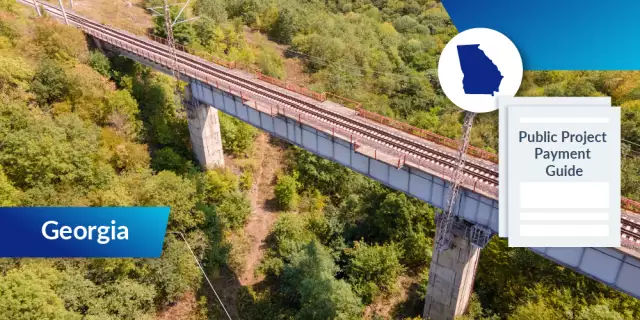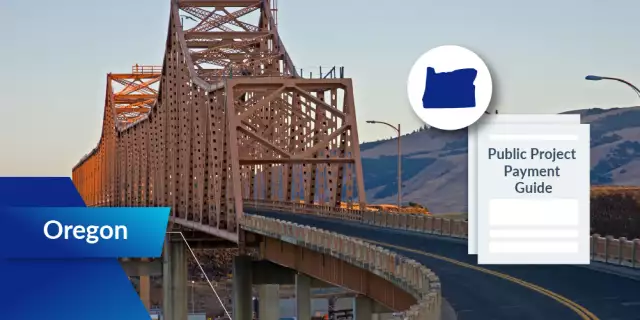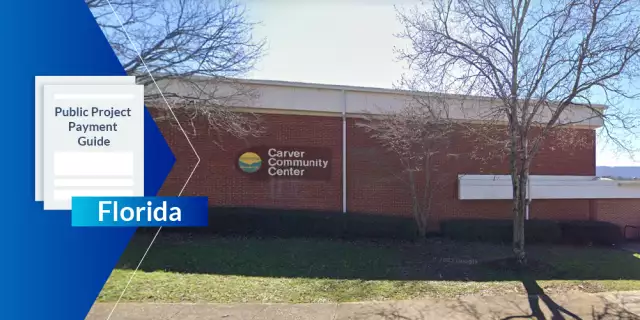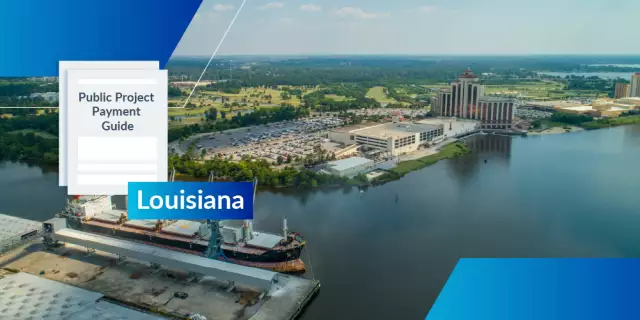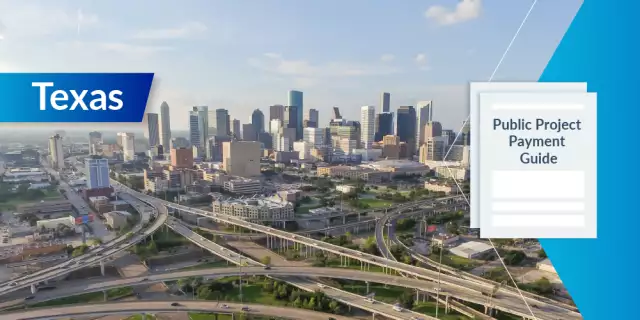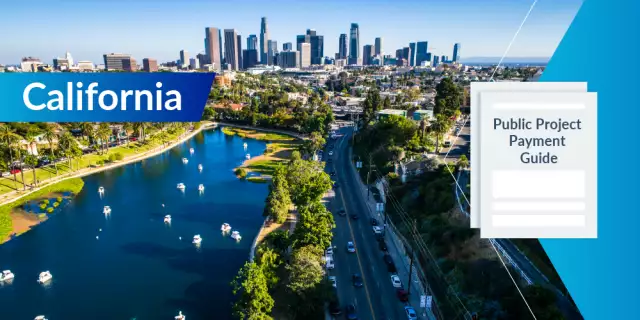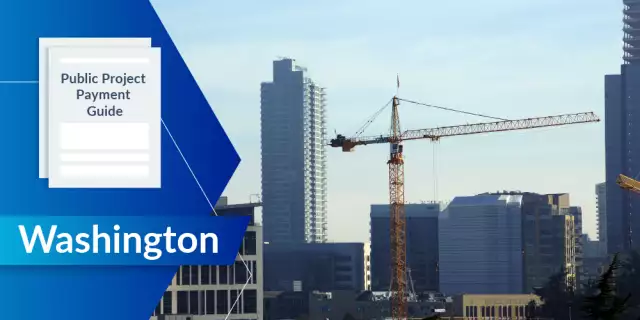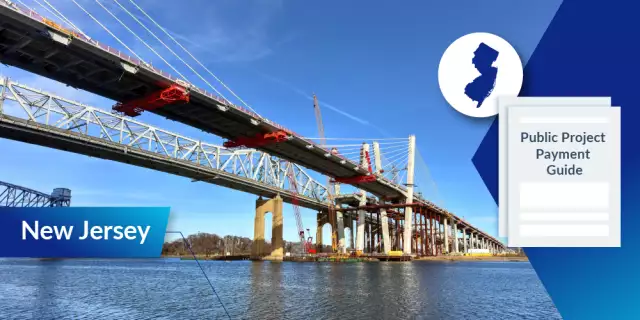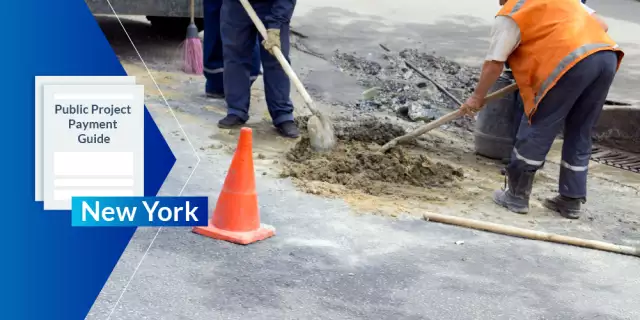How to Get Paid on Georgia Public Projects

As a major focus of the Biden administration’s Build Back Better plan, the federal government is allocating over a trillion dollars in funding for public infrastructure construction projects over the course of the next decade. A big amount of that construction funding is going to be headed directly to individual states, and there are plenty of opportunities for contractors to benefit from Georgia public projects.
With this much work available, contractors across the state would benefit highly from being ready to take advantage of these new opportunities — and being completely prepared to protect their payment rights while doing so.
Popular thinking in the construction world is often that public projects run into fewer payment problems than private ones do, but that often proves itself to be a misconception: Even when public works projects are a major source of benefit, contractors are at just as much risk of slow payment or nonpayment as on any private project. Protecting your payment rights on public works projects is absolutely crucial.
Payment protection on Georgia public projects
Even though payment challenges can be remarkably similar, payment protection is very different between private and public work. When payment problems come up on a public project, contractors can’t just file a mechanics lien as a solution, as both the federal government and state governments prohibit private companies from gaining interest in public property.
Instead, general contractors on public construction projects have to secure a payment bond for the project prior to the beginning of work. In the event of a payment dispute, contractors file claims against the payment bond instead of against the property itself.
The Miller Act provides directly for this payment protection at the federal level, and most states have their own version of it with laws usually called “Little Miller Acts.” Georgia has its own Little Miller Act which protects contractors on public works projects — as long as they stay on top of their payment rights in the process.
Working nearby? Check out How to Get Paid on Florida Public Projects.
Georgia bond claim laws
Georgia’s Little Miller Act covers all projects valued at $100,000 or more, although a bond may be required for contracts that are less than $100,000 at the public entity’s discretion.
This law includes expansive protection for unpaid contractors on public projects — parties who supply labor and/or materials to the general contractor, a subcontractor, a sub-subcontractor, or another supplier are protected under the state’s bond claim law. Even suppliers to suppliers are likely covered.
Georgia Notice of Commencement
Georgia requires that a Notice of Commencement (NOC) is filed on all construction projects in the state. A Notice of Commencement is a form publicly filed in the county records to signify that a construction project has begun, including information that identifies the property, the work, the parties involved, and the scope of the project, and it can be filed by either the public entity or the project’s prime contractor.
However, it’s important to note that the Notice of Commencement has specific legal consequences for a lot of people working on a project. When a Georgia NOC is filed, subcontractors and suppliers must then deliver a Notice to Contractor when they start on the job. This gives property owners and general contractors notice that these parties are working the job, making it easier to track payments to them and collect waivers from them. If the Notice to Contractor isn’t properly sent, then the applicable party loses bond claim rights.
On the other hand, when a Georgia Notice of Commencement is not recorded, all subcontractors and suppliers to the job automatically have the right to make a claim against the bond, and are no longer required to deliver any preliminary notices.
Learn more: What Is a Notice of Commencement? (Forms & How To File)
Georgia preliminary notice
Georgia requires all parties who don’t have a direct contract with the general contractor to provide preliminary notice — also referred to as a Notice to Contractor. This notice preserves the right to make a bond claim in Georgia if the general contractor has properly filed and posted a Notice of Commencement. With that said, subcontractors hired directly by the project’s prime contractor don’t need to send any preliminary notice.
On public construction projects, preliminary notices must be received by the general contractor within 30 days of the filing of the notice of commencement, or within 30 days of the claimant’s first furnishing of labor and/or materials to the project (whichever is later). As mentioned prior, if a party fails to serve a required Notice to Contractor before the deadline, they lose the right to make a bond claim in the event of payment issues. However, if a Notice of Commencement was not properly filed on the project, then the sub-tier bond claim rights are not affected.
Georgia statutes don’t specify how the preliminary notice needs to be delivered to the general contractor, and a method of delivery with proof of receipt is usually best practice. Sending the notice by certified or registered mail is likely the best route.
Making a claim against a payment bond
Bond claims must be received within 90 days after the claimant’s last furnishing of labor and/or materials to the project. Delivery of notice of the bond claim is only specifically required when parties have no direct contract with the general contractor. Best practice in all situations, however, is likely for all parties to provide notice of the bond claim to start the process prior to initiating suit.
In Georgia, a bond claim only needs to include the amount of the claim and the name of the party to whom the labor and/or materials were furnished. That said, it’s usually also advisable to include the information of the general contractor (if the claimant was hired by a lower-tier party), and the contracting public entity, as well as including a description of the project and the labor and/or materials furnished.
The claim can be sent via registered or certified mail, or by personal service or other manners seen as acceptable for service of process. Additionally, Georgia bond claims only need to be delivered to the general contractor, but they can optionally be delivered to the surety if desired by the claimant.
If a suit to enforce the bond claim is filed, it needs to be initiated more than 90 days after the claimant’s last delivery of labor and/or materials to the project, but less than 1 year after the completion of the project as a whole.
Lien waivers
One of only 11 states to do so, Georgia statutorily mandates that all parties on a construction project use certain legislatively designed construction lien waiver forms.
If a contractor or owner asks you to use a lien waiver form that does not conform to the statutory form, the waiver will be invalid, and the contractor could get in legal trouble. As part of this, Georgia state law prohibits contractors and suppliers from waiving their right to file a mechanics lien in the contract.
Deep dive: Georgia’s Very Unusual Rules for Mechanics Lien Waivers
Georgia prompt payment laws
Prompt payment laws regulate the acceptable amount of time in which payments must be made to contractors and subcontractors on public works projects, which ensures that everyone on a project is paid in a timely fashion. Georgia’s prompt payment laws regulate payments from every tier of the construction payment chain.
In order to benefit from the state’s prompt payment act, the requesting party must first be considered as entitled to payment. All contractors and subcontractors need to perform in accordance with the provisions of the contract, satisfying any conditions precedent to payment — which in turn makes the enforceability of the prompt payment act completely dependent on the individual contract terms.
It’s also necessary for subcontractors to provide notice with payment requests, as the benefits of interest being accrued and potential attorney’s fees being covered are lost if this isn’t provided. A notice citing the statute and the interest rate provisions should be included at the time of submitting the pay request.
Public entities are required to pay their prime contractors within 15 days of receipt of a project invoice or pay application. With payments from the general contractor to their subs and suppliers, the prompt payment deadline begins upon receipt of the payment from the owner. When the project’s general contractor receives payment, they need to then pay their subs and suppliers within 10 days; this same time limits apply to payments from subs to their subs and suppliers as well.
Additionally, receipt is defined in the statute itself, which means that the time limit revolves around actual receipt of funds in the contractor or sub’s bank account — leaving less confusion around the particulars.
Retainage works just slightly differently, with the main difference impacting the prime contractor. Once the project has reached substantial completion, the public entity needs to pay out withheld retainage within 30 days after receiving an invoice for final payment. In turn, once received, contractors must release retention funds down the chain within 10 days.
Georgia’s Prompt Payment Act provides a list of certain circumstances in which owners and general contractors can withhold payments:
Any payments that are late or withheld improperly are subject to penalties. Interest accrues on the payment amount at a rate of 1% per month or a pro-rata fraction on the unpaid balance. However, this interest rate will not accrue unless the person being charged interest was notified of this at the time the payment request was made. Additionally, contractors may agree to other payment terms and lesser interest rates if they so choose, but, if a party materially breaches these contract terms, the interest rate will revert to the statutory 1%.
Georgia retainage laws
Retainage (or retention) is an amount of money withheld from payment to a project’s contractor or subcontractor until the end of a given project (or until a time specified in the contract). Generally, retainage is used to ensure that a contractor finishes its work completely and correctly.
Georgia’s retainage laws apply to almost every type of public construction project in Georgia, with the only exceptions being projects contracted by the Georgia Department of Transportation or any public works contracts whose value is less than $150,000, or projects where the duration is less than 45 days.
For all applicable public projects, the maximum amount of retainage that is allowed to be withheld from contractors is 10%. However, this could change when the entire contract value has reached the 50% completion mark; at this point, the public entity may decide to stop withholding retention from any future progress payments if it feels like the work done thus far is satisfactory.
On the other hand, if the public entity decides that the work being done is unsatisfactory or the contractor has fallen behind schedule, it can choose to continue withholding retainage after the 50%-completion mark (though this amount will be limited to 10% as before).
It’s important to note that recent changes have affected this, too. Effective for all contracts entered into on or after July 1, 2022, retainage on public projects is capped at no more than 5%, with no automatic reduction at the 50% completion mark.
This can have a trickle-down effect for all of the contractors on a project, depending on the situation: If the public entity is withholding retention, the prime contractor can then withhold retainage from their subs and suppliers. In these situations, the rate withheld cannot be any more than what the entity is withholding from the prime contractor.
If there are still outstanding retainage payments when the project is nearing closeout, then once the prime contractor submits their invoice for final payment upon substantial completion, the public entity then has to pay the rest of the retainage within 30 days of receipt.
Recent changes to the state’s retainage laws have effects here as well. For all contracts entered into on or after July 1, 2022, subcontractor retainage may be released separately upon completion of their portion of the work at the discretion of the public entity and following approval from the general contractor.
Georgia’s retainage laws for both public and private projects don’t provide any specific penalties for nonpayment of retainage, but the state’s prompt payment laws instead treat retention payments like any other payment on a public works project that is held back.
Protect your payment rights on every public project
Though there are a number of guidelines that need to be followed in order to secure payment rights on public projects in Georgia, going the extra mile to protect your payment rights can help to ensure that you’ll receive the right payment for your work in any situation.
Even though preliminary notices are required for many contractors on public projects in Georgia, it’s important to file them as early as possible in order to ensure that bond rights are maintained. Even beyond maintaining these rights, sending a preliminary notice maintains a line of communication throughout the chain on a construction project, giving all contractors involved the opportunity to make sure that payment disputes are taken care of earlier on in the process rather than later.
When a company is dealing with documentation like what is needed for preliminary notices and bond claims, proper document retention and management is an absolute necessity when it comes to protecting your payment rights. Especially when sending notices and maintaining the proper documents needed for claims, it can be enormously beneficial for you to have an organized policy for document retention.
